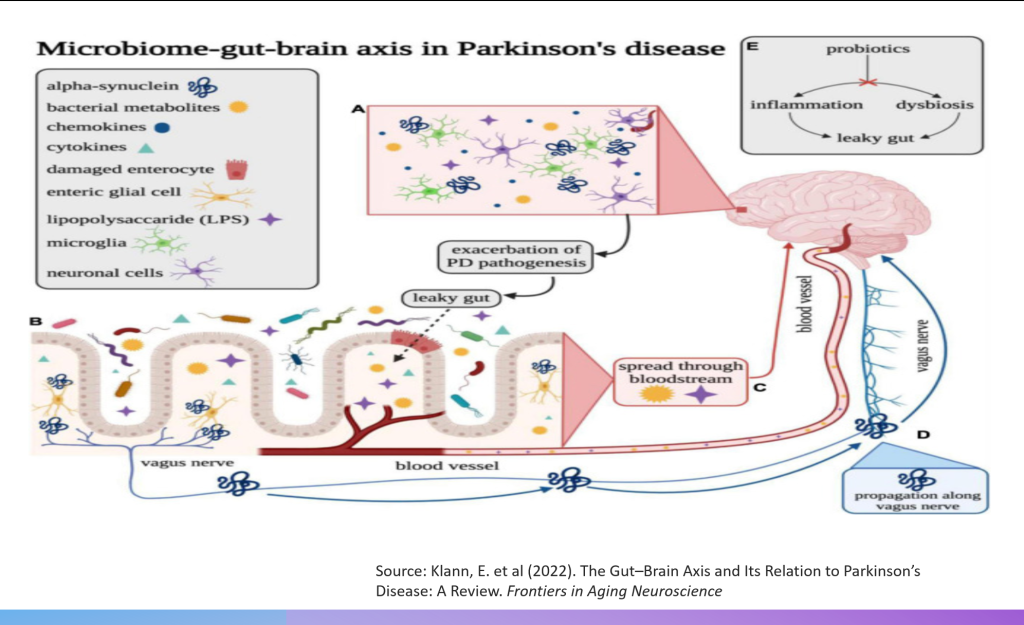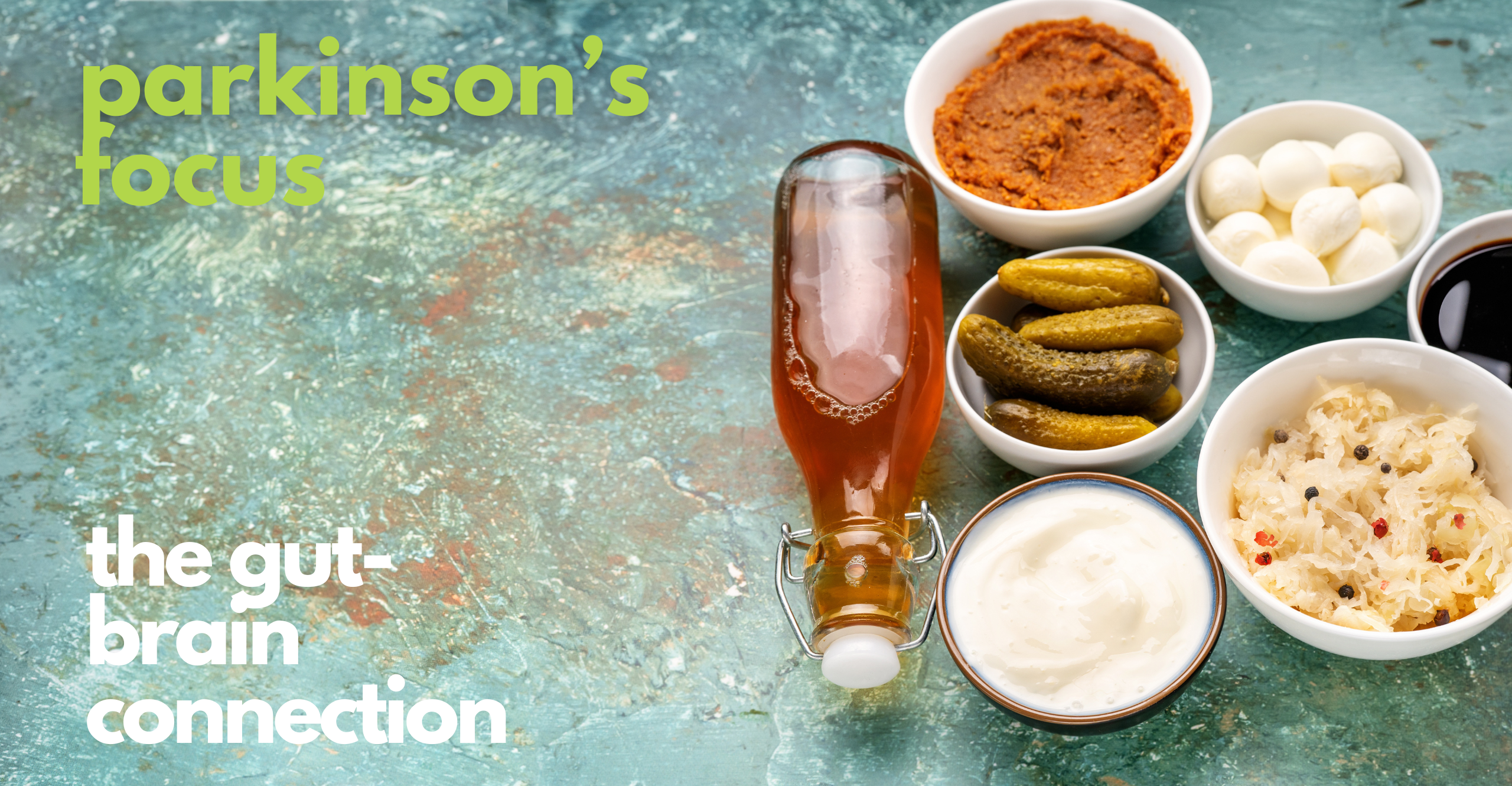Emerging research suggests that the origins of Parkinson’s may not solely reside within the brain but could also involve the intricate interplay between the gut and the brain. This revelation has led scientists to delve deeper into the gut-brain connection to unravel the roots of this complex disease.
The notion of a gut-brain link in Parkinson’s disease gained traction with the discovery of alpha-synuclein, a protein that forms clumps called Lewy bodies, a hallmark of Parkinson’s pathology. Interestingly, these abnormal protein aggregates have been found not only in the brains of Parkinson’s patients but also in the gastrointestinal tract, specifically in the enteric nervous system (ENS), which governs the function of the gut. This finding suggests a potential route through which Parkinson’s pathology may spread from the gut to the brain, known as the “gut-to-brain hypothesis”. The image below shows how alpha-synuclein can travel via the vagus nerve as well as through the blood into the brain.
The gut is home to trillions of microbes collectively known as the gut microbiota, which play a crucial role in regulating various physiological processes, including immune function and neurotransmitter production. Alterations in the composition and diversity of the gut microbiota, termed dysbiosis, have been implicated in a range of neurological disorders, including Parkinson’s disease. Studies have shown that individuals with Parkinson’s often exhibit distinct differences in their gut microbiota compared to healthy controls, hinting at a possible role of gut dysbiosis in disease progression.
The bidirectional communication between the gut and the brain occurs via the gut-brain axis, a complex network of neural, hormonal, and immunological pathways. Disruption of this axis, whether due to alterations in gut microbiota, inflammation, or dysfunctional ENS signaling, may contribute to the pathogenesis of Parkinson’s disease. Compelling evidence from animal models suggests that gut dysbiosis and inflammation can exacerbate Parkinson’s-like symptoms, further supporting the significance of the gut-brain connection in disease development.
Understanding the role of the gut-brain axis in Parkinson’s disease holds immense therapeutic potential. Targeting the gut microbiota through probiotics, prebiotics, and dietary interventions is a useful approach for someone with Parkinson’s symptoms. There are a number of probiotics that have been researched with Parkinson’s in mind: bacillus subtilis, for example, has been found to help prevent the formation of alpha-synuclein clumps in the gut, and it is one of the gut bacteria that have been found to be lower in Parkinson’s patients. A number of probiotic blends contain b. subtilis for that reason. In addition, interventions aimed at restoring gut barrier integrity or modulating immune responses may also help alleviate neuroinflammation and halt disease progression.

